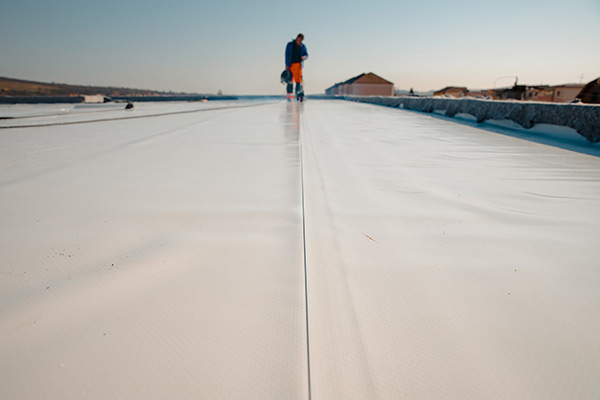If you are a commercial property owner, you might be concerned about your roof, particularly when it begins to show signs of leaking and/or age. Roofs can endure for a period, but they eventually deteriorate. To extend the lifespan of your roof and diminish your worries, you can consider putting a protective coating on it.

It is vitally important to select the appropriate type of roof coating and ensure it is administered by experts to optimize these advantages and avert potential concerns. The selection of your roof coating may hinge on factors such as climate, the prevailing roofing material, and the particular requirements of the structure. Routine assessments and upkeep are also necessary to guarantee the durability of the material and the overall strength of the roof.
Why should you apply a coating to your roof? Your roof withstands numerous challenges, with the sun, rain, and other harsh climate factors exacting a toll on it. Over time, it can encounter issues such as water accumulation, fissures, and alteration in appearance. Envision your roof as the skin of your property; it safeguards you, but it can also undergo harm from the elements. Roof coating operates as a sunscreen and moisturizer for your roof. It offers assistance in various ways:
Waterproofing
One of the primary reasons for coating a flat roof is to provide an additional layer of waterproofing. This helps to prevent leaks and water damage, extending the lifespan of the roof and protecting the structure beneath it. Additionally, coating can help prevent the roof from mold and mildew damage—that can lead to leaks in the future.
Reflectivity and Energy Efficiency
Many roof coatings are designed to reflect sunlight and UV rays, which can reduce the heat absorbed by the roof. This can lead to lower cooling costs in warmer climates, making the building more energy-efficient.
UV Protection
Roof coatings often include UV inhibitors that protect the roofing material from the damaging effects of the sun’s ultraviolet radiation, which can cause premature degradation.
Extended Roof Lifespan
Coatings can protect the roof membrane from weathering, UV damage, and other environmental factors, which can extend the life of the roof.
Reduced Maintenance
A properly applied roof coating can reduce the need for ongoing maintenance, as it forms a protective barrier against the elements and can help prevent the growth of mold and algae.
Seamless and Flexible
Roof coatings are typically applied as a liquid that dries into a seamless, monolithic membrane. This flexibility can help accommodate the natural expansion and contraction of the roof due to temperature changes.
Environmentally Friendly
Many roof coatings are formulated to be environmentally friendly and low in volatile organic compounds (VOCs), making them a more sustainable choice for roof maintenance.
Improved Aesthetics
Roof coatings can enhance the appearance of the roof, giving it a fresh, clean, and uniform finish. This can be especially beneficial for commercial or industrial buildings with flat roofs.
Cost-Effective
Roof coatings are often more cost-effective than a full roof replacement, making them a budget-friendly option for extending the life of a flat roof.
Tax and Energy Credits
In some cases, the installation of reflective or cool roof coatings can make a building eligible for tax incentives, rebates, or credits aimed at promoting energy efficiency and environmental sustainability.
